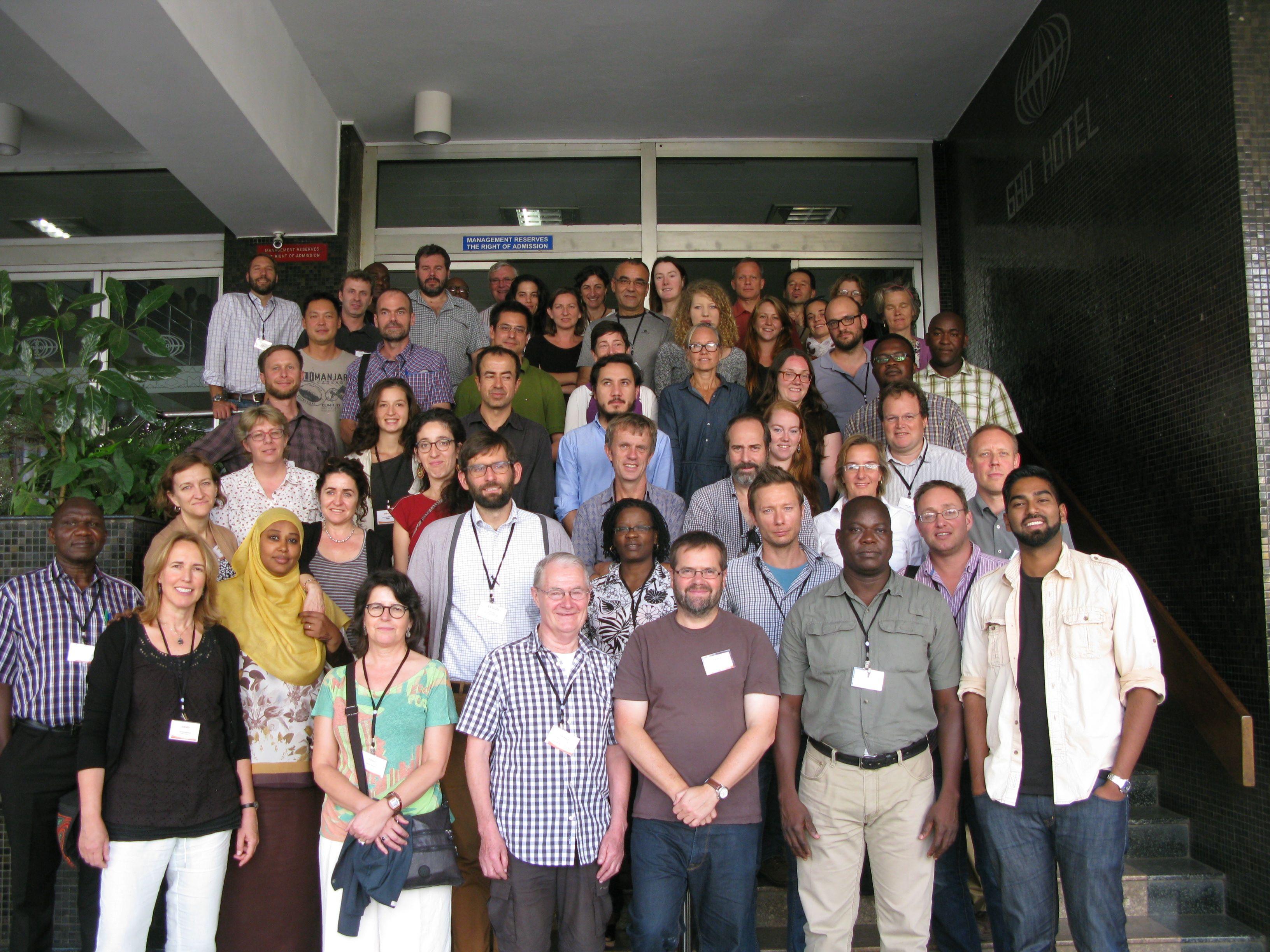Beyond Ebola: Reflections on the EEHF

LSHTM/Jeroen Ensink
This year, from 16th to 17th October, I was thrilled to attend the 6th EEHF, held in Nairobi, Kenya. The Forum provided an excellent opportunity to meet like-minded professionals with substantial WASH expertise from organizations such as Médecins Sans Frontières (MSF), Care, the International Rescue Committee, UNHCR, UNICEF, the Red Cross, Oxfam and Action Contre la Faim, all of whom came together to exchange recent field experiences and explore new approaches to action and intervention in the WASH sector.
Opening Address & Keynote Speech
In his introductory speech, Andy Bastable, Chair of the Interagency Emergency WatSan group, highlighted that as opposed to the rather technically-oriented meetings of the past years, the 6th EEHF was aimed at integrating more health issues than had previously been the case. Under the umbrella objective of the Forum – to bring together research and experiences from the field to establish how current field practices could be improved – the focus this year was placed on disease outbreaks, including cholera, typhoid and the unprecedented Ebola outbreak that so tragically hit West Africa (namely Liberia, Guinea and Sierra Leone) in 2014/15. To set the scene, Peter Maes, Leader of MSF’s WASH working group, gave an insight into the recent Ebola crisis from an MSF perspective as the organisation traditionally involved with the management of Ebola outbreaks.
Lessons Learned from the Ebola Crisis
A great deal of discussion among participants centred on what the 2014/15 West African Ebola outbreak would mean in terms of future outlooks and response strategies, i.e. how the WASH sector could be better setup to cope with future outbreaks (not necessarily Ebola) and how barriers that were faced during this outbreak could be overcome.
First and foremost, the critical need for better coherence, coordination and cooperation as well as evidence-based field practices was stressed. Technically easy solutions that enable actors to quickly set up treatment centres and the like in response to potential future Ebola outbreaks were also highlighted as being crucial. Others emphasised that in terms of the recent crisis the main problem was not finding solutions, but rather validating these; in future outbreaks higher level authority is needed to speed up decision-making and response implementation. It was suggested that people on the ground should have been involved in higher level discussions and decision-making processes, making it possible to synthesise what has been learned and come up with recommendations based on the invaluable field experiences of the different stakeholders involved.
A stronger focus on community involvement, social mobilisation and awareness raising activities was also deemed essential. In fact, the importance of community-focused action was described as the biggest lesson of the West African Ebola outbreak. In order to quickly and more effectively engage communities in future Ebola (or other outbreak) responses, social mobilisation needs to be implemented much earlier next time. For example, dead body management processes (i.e. safe burials) should respect local cultural and social norms. While few humanitarian organisations dealt with dead body management, its coordination and integration with public health promotion is key to responding to Ebola outbreaks.
As highlighted by Marion O’Reilly of Oxfam GB, fear and lack of appropriate information, distance from and the inaccessibility of facilities, and unfamiliarity and perceived resistance to outsiders were among the main causes of failure to seek treatment and persistence of high risk practices. Community perspectives on addressing the underlying causes identified “sensitisation” (such as in the form of household and community level dialogue, community engagement, building hope through survivors, and proximity and familiarity of treatment facilities) as important means to achieve better compliance. The lack of involvement of local people in the context of the West African Ebola outbreak constituted a substantial barrier to safe treatment seeking behaviours among communities, with local consultations often slow to engage with local leaders and healers, and neglecting to consult with the wider population. Interestingly, those distributing MSF household disinfection kits in Monrovia reported that communities were generally very willing to be engaged in ongoing Ebola response efforts.
Wrapping Up
As the unprecedented Ebola outbreak of 2014/15 demonstrated, it remains of critical importance to be prepared for the unexpected. While different agencies were found to use different approaches and methods, these were underpinned by common principles, with actors reaching a consensus on working to give social mobilisation a greater profile within their respective organisations. It was moreover emphasised that WASH should be more proactively integrated with health through better linkages with health actors and focus on public health approaches. In that sense, the Ebola outbreak was described as a tragic “window of opportunity” to shape the wider WASH sector and its actions. Some of the ‘new’ topics to be discussed in future EEHF conferences include:
- Cross-border programming
- The relationship between WASH and health, WASH and nutrition, and WASH and gender
- Ways to achieve greater sustainability in WASH-related field work
